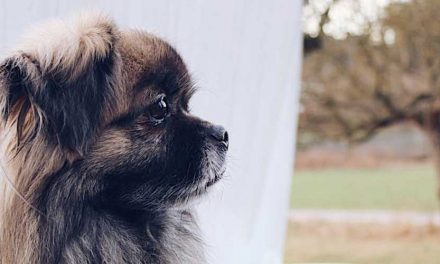The Canary Dog, also known as the Perro de Presa Canario, is a robust and powerful breed that hails from the Canary Islands, specifically Gran Canaria.
With its impressive physique, remarkable strength, and loyal disposition, it has gained recognition as both a guardian and companion throughout the years.
Here’s a closer look at this fascinating breed.
Origins and History
The Canary Dog’s ancestry dates back to the 15th century, where it was used for various roles, including guarding livestock and property as well as hunting large game.
The breed is thought to be a mix of the native Bardino and molosser dogs brought to the islands by the Spanish conquistadors.
Their bold and protective nature made them invaluable to farmers and ranchers, and these traits continue to define the breed today.
Physical Characteristics
The Canary Dog is a large and muscular breed, with males typically weighing between 110 to 145 pounds and females ranging from 80 to 100 pounds.
Their height generally falls between 24 to 26 inches at the shoulder.
The breed has a broad head, thick neck, and powerful jaws, which contribute to its imposing appearance.
Their coat is short and dense, coming in various colors, including brindle, fawn, and multiple shades of brown.
Temperament
One of the hallmark traits of the Canary Dog is its loyalty to family.
They are known to be protective, making them excellent guard dogs.
However, this protective instinct means they require proper socialization from a young age to ensure they are friendly and well-adjusted around strangers and other animals.
With early socialization and consistent training, they can be affectionate, calm, and well-mannered companions.
Training and Socialization
Training a Canary Dog requires consistency, patience, and firmness.
They are intelligent and capable learners but may exhibit a stubborn streak due to their independent nature.
Positive reinforcement techniques work best, as harsh training methods can lead to fear or aggression.
Socialization is crucial; introducing these dogs to various environments, people, and other animals at a young age will help them become well-balanced adults.
Exercise Needs
Proper exercise is essential for the Canary Dog, as they possess high energy levels.
Daily physical activity, such as walks, playtime, and mental stimulation, is vital to keep them healthy and happy.
Without enough exercise, they may become bored and develop destructive behaviors.
Health Concerns
Like all breeds, the Canary Dog is susceptible to certain health issues.
Potential concerns include hip dysplasia and various hereditary conditions.
Regular veterinary check-ups and a healthy diet can help mitigate these risks and ensure the overall well-being of the breed.
Conclusion
The Canary Dog is a remarkable breed known for its loyalty, strength, and protective instincts.
They can be delightful companions for experienced dog owners who understand their needs for training, socialization, and exercise.
With the right care, a Canary Dog can thrive as a devoted family member and protector, embodying the noble traits that have made this breed cherished over centuries.
Whether as a working dog on farms or a loving companion at home, the Canary Dog stands out for its vigor and dedication.









